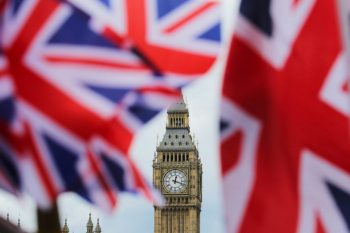

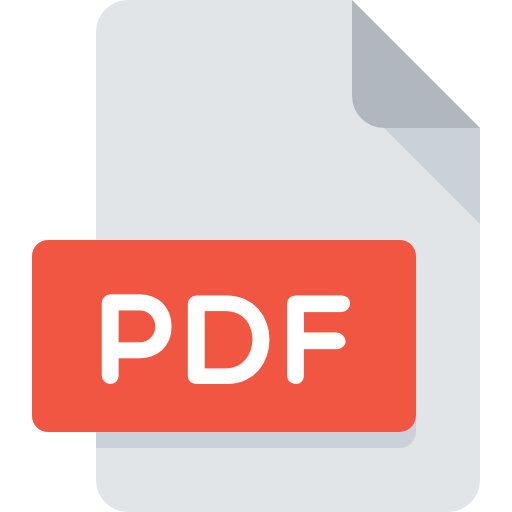 April 2018 • Report 16 •
April 2018 • Report 16 •
The current crisis between the UK and Russia is the first real challenge to British power since the Brexit vote. Its allies immediately stood beside Britain. But will it always remain so? More than ever this early spring what Brexit means for the UK’s position in the world raise questions.
For Theresa May and her Foreign Secretary, Brexit will bring about a “Global Britain”, a more globalized country. In a report on the subject published on 1st March, the FCO contends that « Although we will lose some elements of the force multiplier advantages of EU membership, we will gain more flexibility and agility to react, and our foreign policy capability broadly drawn will ensure we are one of the major global players as now”. The Parliament are skeptical. Both houses are asking the Government what they mean by a “Global Britain”, as if the country had not been a global champion for a long time with its Empire, its “special relationship” with the United States, its position at the UN, NATO and yesterday in Europe, its world looking economy and finance. They fear that in the wake of May and Johnson’s speeches those words could only amount to « a superficial rebranding exercise » that « risks undermining UK interests by eroding support for a global outlook here at home ». So, what will it look like?
Being a permanent member of the UN Security Council, a nuclear power, one of the three « big ones » in the European Union with Germany and France, the United Kingdom punches well above her weight on the twenty-first century world stage. English, the language of globalization, is a legacy of her imperial past. Her civilisation, universities, legal system and her parliamentary democracy remain references on all continents. Britain still is the fifth world economy. London became the first financial center and the first global city. Although weakened, her armed forces are among the most respected ones in the world.
In addition to the traditional components of power (diplomacy, economy, defence forces and industries), it has outshone many other countries in the new means of influence of the globalised world that are soft power: research and innovation, media, digital economy, attractiveness for brains, business as well as sporting events, cultural outreach. On 23 June 2016, this country decided to leave the European Union. Brexit is an unprecedented historic event: never before had any country decided to stop the European and supranational integration process to return to a more traditional form of national sovereignty.
The United Kingdom did it, opting for a radical way of breaking her relations with the EU, out of the customs union and the European Economic area. Theresa May promises a “global Britain”, to champion globalization. The Conservative voters believe that, freed from the bureaucratic shackles of a European Union doomed to crises (the euro, migrants…), her forces, which achieved so much in the past, will again flourish. The current negotiation phase marginalises London automatically in the European Union. What could happen tomorrow in the wider world? How will the other global actors react (the United States, China, Russia, Brazil, Japan…)? What could London retain in terms of international and military clout? How and at what level will the United Kingdom manage to regain its place in the international order after having left the European institutions? Will its economy recover from the Brexit adventure after suffering the first blows of the current uncertainty?
The foreseeable phases of Brexit, at least its most likely scenarios, raise questions to say the least. A transition period of just 21 months has just been agreed in the European economic area and the customs union. Should the negotiations succeed, the United Kingdom could be bound to Europe and its international partners through a network of free-trade agreements. Should they fail, by WTO rules. Both situations entail important risks for its economy, which could endanger its military power, and up to its territorial integrity.
The European Union is often seen as a « power multiplier » for up to its biggest Member States. None would on its own retain the means to exert influence on the world stage, be it politically, diplomatically, economically or commercially. Whitehall does not deny it but reckons that what the UK would lose would be offset by a “more flexibility and agility to react” that would allow it to preserve its global rank. Brexit offers a life-size test to this vision. Going through the whole range of what Brexit will mean for British global power in all its dimensions, we aim at defining what kind of actor the United Kingdom could become.
Our evaluation |
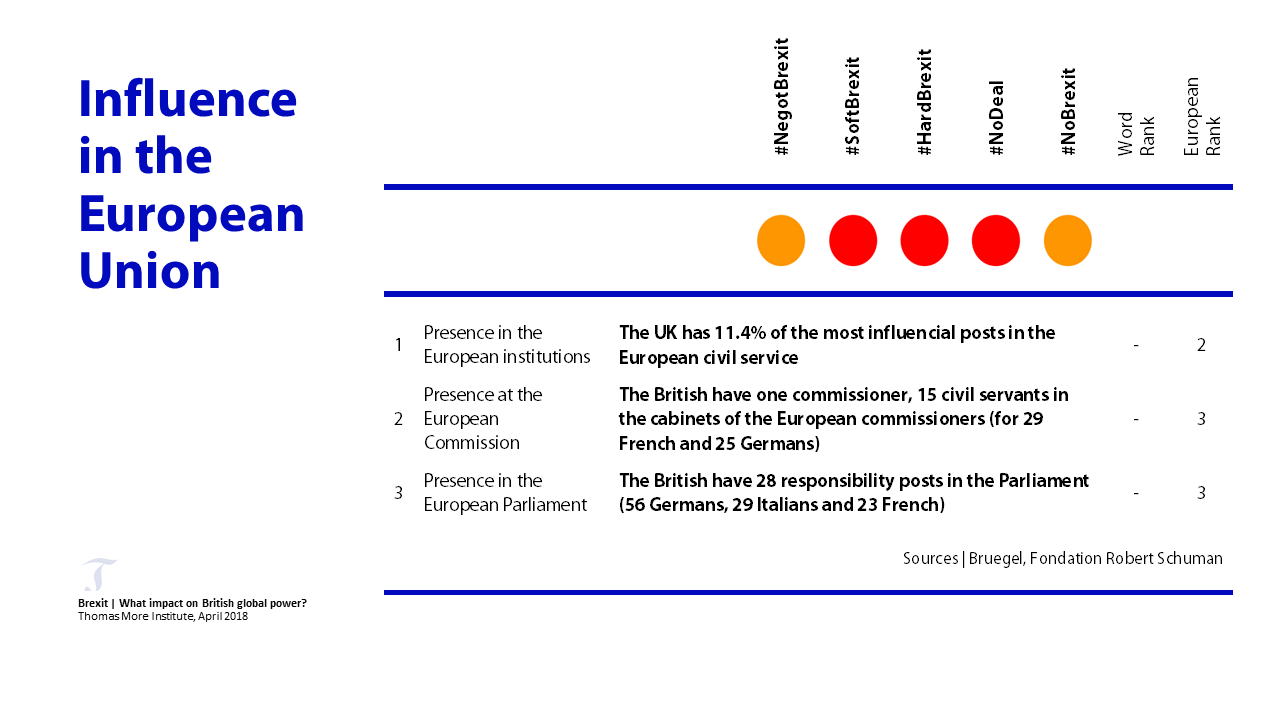 |
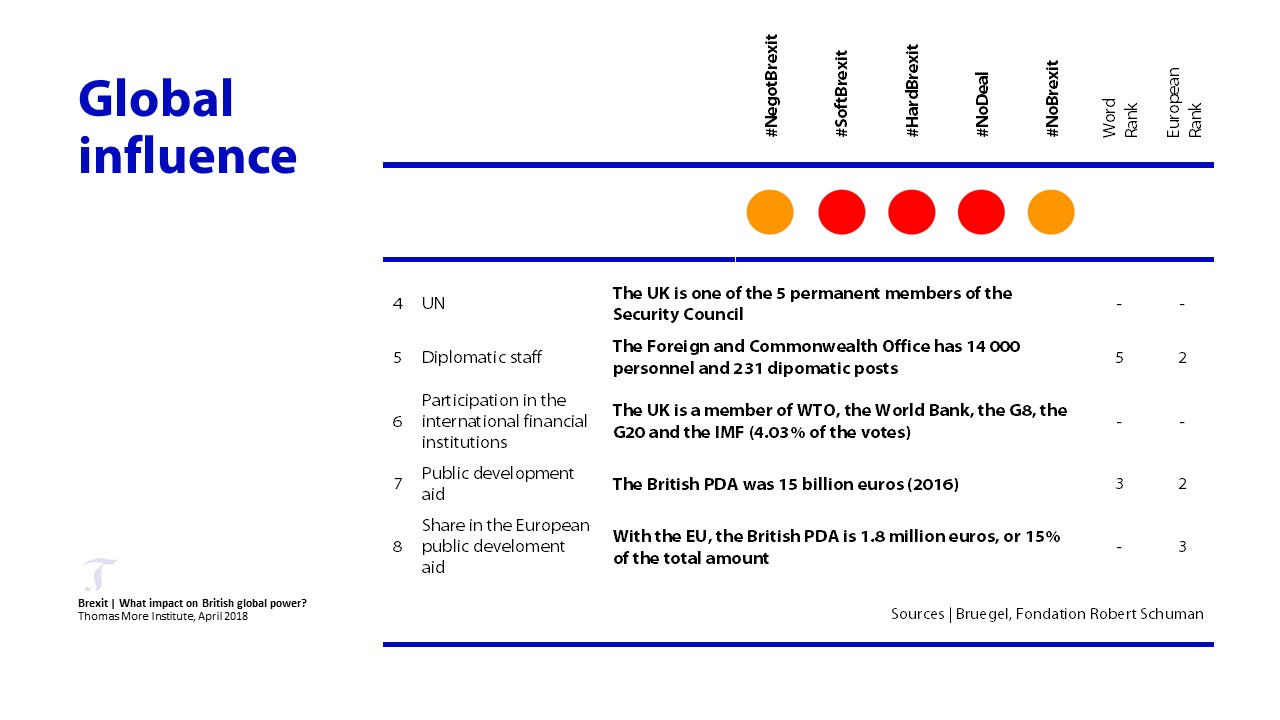 |
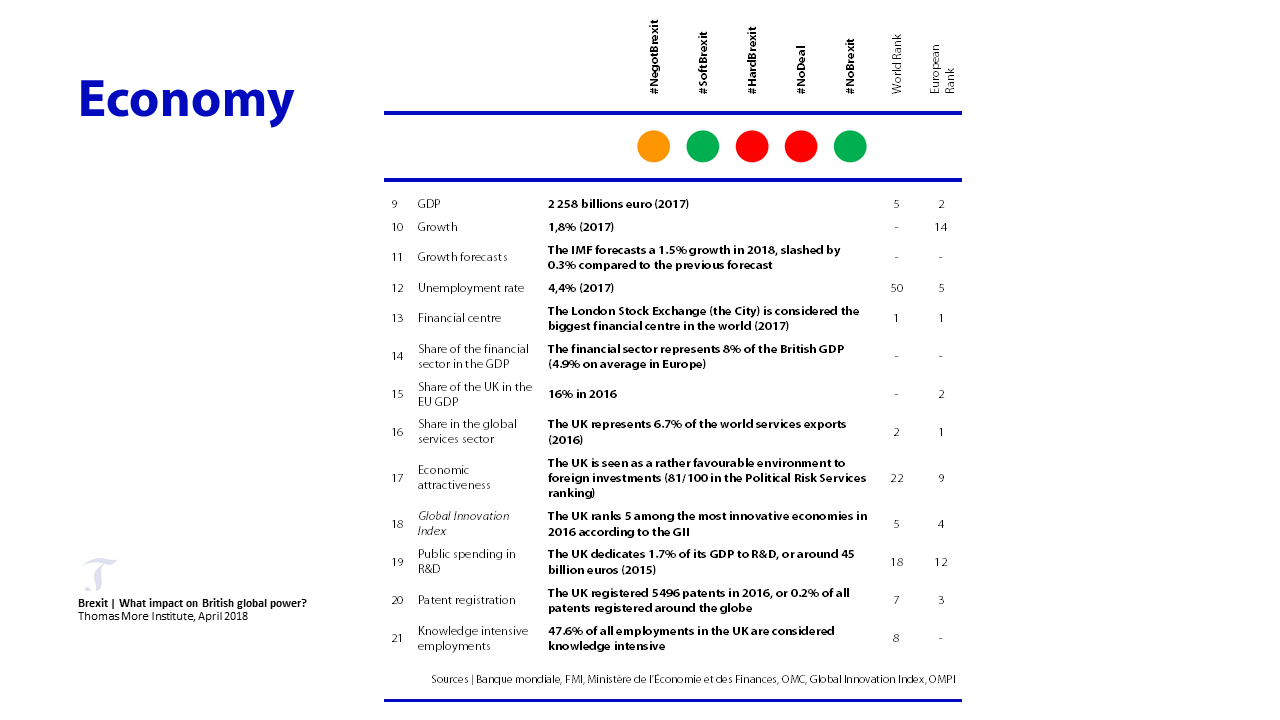 |
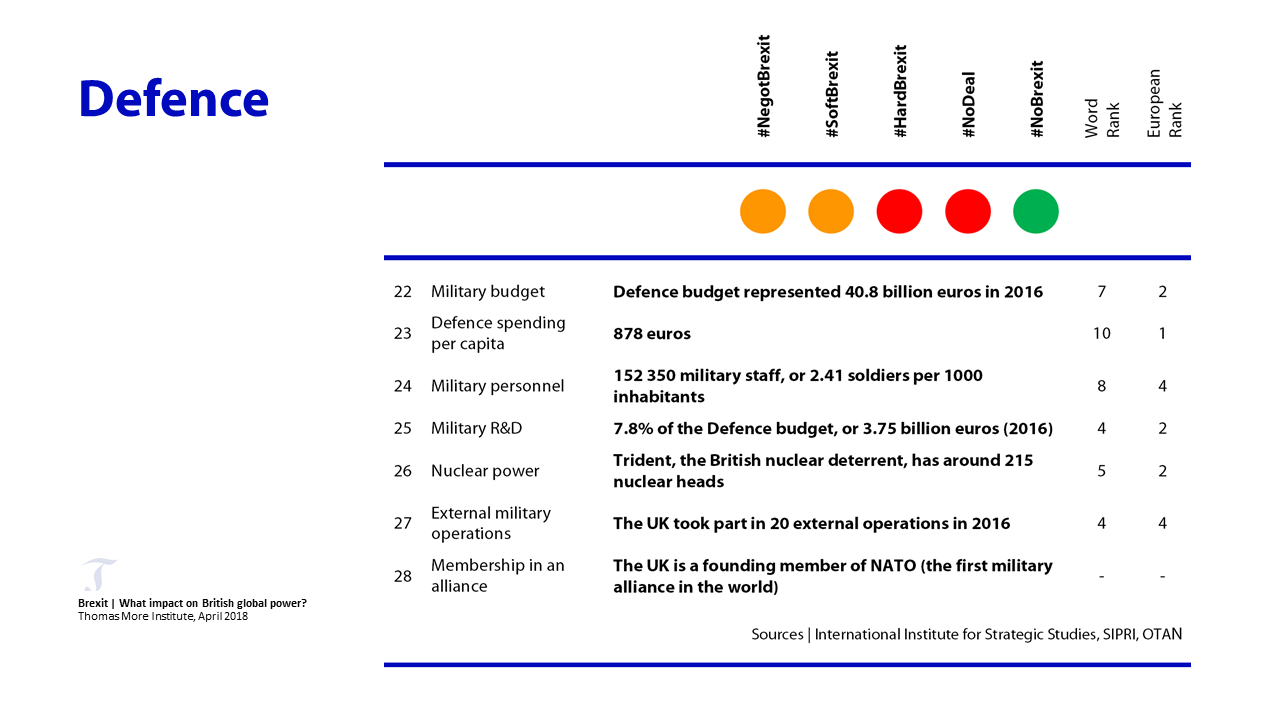 |
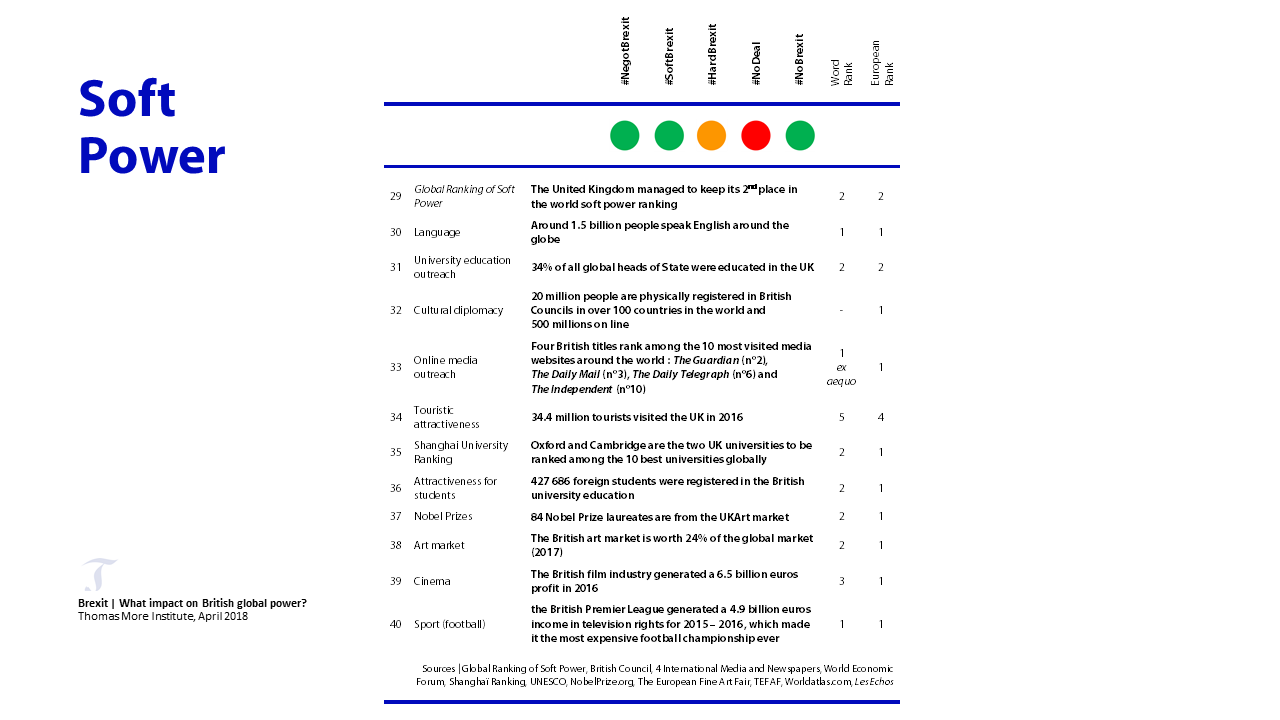 |
